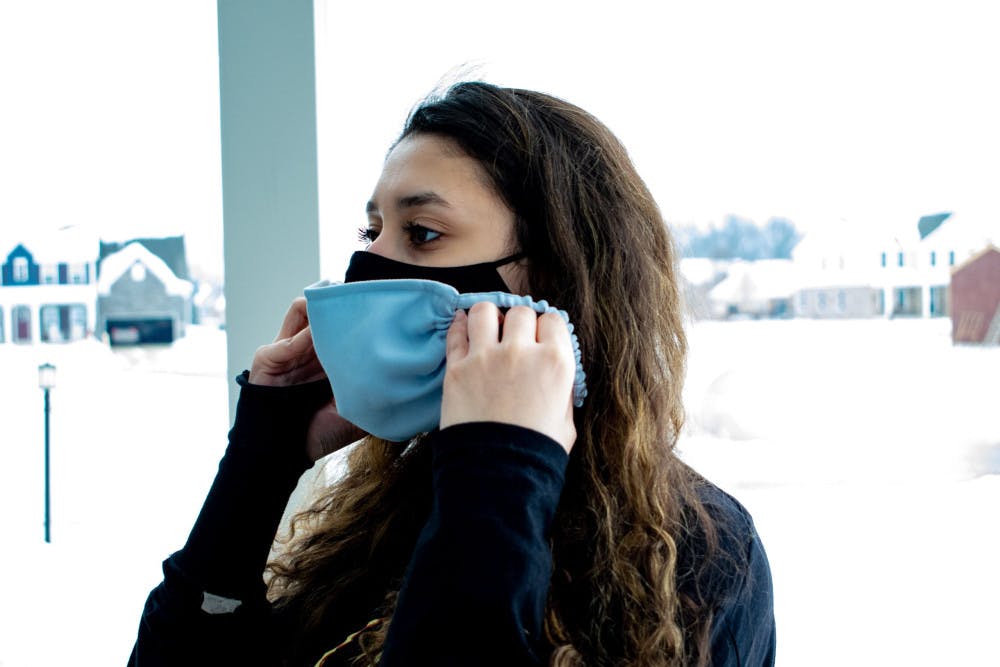Double Masking | Photo by Diana Jaber | The Wright State Guardian
Earlier this month, the Centers for Disease Control and Prevention (CDC) updated recommendations on how people can best protect themselves from the coronavirus. Recommendations provided include double-masking and new detailed quarantine guidelines for those who are vaccinated.
Double-masking
“Masks work best when everyone wears them, but not all masks provide the same protection. When choosing a mask, look at how well it fits, how well it filters the air, and how many layers it has,” said the CDC in a recent update to their webpage.
The webpage goes into further detail about different guidelines for mask wearing, including making sure your mask of choice has layers. These layers can include a multi-layer cloth mask or a disposable mask beneath a cloth one.
At this time, double-masking is not a public requirement in the U.S., but is highly recommended when out in public areas.
“Still, some people might want extra protection if they’re at risk for severe illness if infected or will be in situations where they expect to be around others for extended periods, such as on a plane,” said the Associated Press in a recent AP News article.

Vaccines and quarantine
Along with updated mask recommendations, the CDC also announced that individuals who have received either of the two available coronavirus vaccines will no longer have to quarantine if exposed to the coronavirus.
“Fully vaccinated persons who meet criteria will no longer be required to quarantine following an exposure to someone with COVID-19,” said the CDC in a recent update to the mRNA COVID-19 Vaccines webpage. Additional considerations for patients and residents in healthcare settings are provided.
Criteria the CDC outlined needing to be met in order for a vaccinated individual to not need to quarantine if exposed include the following:
- The individual is asymptomatic following the exposure.
- Two weeks have passed since the first or second dose of the vaccine.
- The exposure occurred within three months of the second vaccine dosage.
Although these recommendations are new and may change, not everyone agrees with the CDC’s latest quarantine guidelines.
“I think you should still quarantine for a few days, but I don’t believe that it should be the full two weeks,” said recently vaccinated Wright State University (WSU) student Rachel Lewis. “It’s only right for yourself and others to be safe and protect the lives of others.”
Lewis is an Elementary Education (P-5) major at WSU who student teaches in Huber Heights, rendering her eligible for the vaccine earlier than most of her peers.
“I got my first dose on Feb. 6 and I haven’t had any symptoms. Luckily my arm wasn’t sore at all,” said Lewis. “I was beyond excited to get the vaccine and my next dose is Saturday, Feb. 27, so I can’t wait for that date.”
At this time, it is unknown whether WSU will change its coronavirus guidelines to reflect these latest CDC recommendations.











